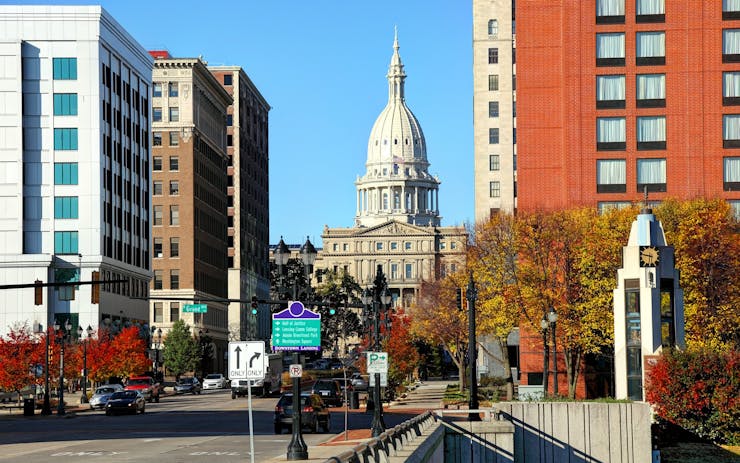Democrat Lawmakers in Michigan have introduced legislation that would allow all existing medical marijuana dispensaries in the state to stay open while they are applying for licenses.
State Sen. David Knezek (D-Dearborn Heights) and Rep. Yousef Rabhi (D-Ann Arbor) introduced the bills in the Senate and House this week to solve a problem recently created by the Michigan Medical Marihuana Licensing Board. The board issued an advisory notifying dispensaries that they should close before Dec. 15, or risk not getting a license, according to the Detroit Free Press.
Medicinal cannabis was approved in Michigan back in 2008, and dispensaries have since been selling to nearly 220,000 patients while operating in a legal grey area. In 2016, Gov. Rick Snyder signed a package of bills—HB 4209, HB 4210, HB 4827, SB 141, and SB 1014—which together regulate the retail sale of medical marijuana products.
Since then, there has been a lot of back and forth about what to do with Michigan dispensaries—whether to allow them to stay open while applying for licenses, or shut them down until they’re licensed.
Michigan Live recently reported that the Michigan Medical Marihuana Licensing Board notified existing dispensaries that if they don’t cease operations by Dec. 15 of this year, that could be a possible impediment to getting licensed.
The bills introduced by Knezek and Rabhi would allow dispensaries in Michigan that are still operating on Dec. 15 to apply to the cannabis board for a medical marijuana license, and then stay open until the board decides accepts or rejects the application.
Rabhi’s bill, HB 5014, defines an already-operating medical cannabis dispensary that applies for a license before Feb. 18, 2018, as a “licensee” until the board makes a final decision on the dispensary’s application.
According to reports, Knezek’s bill is very similar to Rabhi’s.
Rabhi told MLive that it is important to keep the state moving forward on medical cannabis.
“We can’t go back in time. Here in Michigan, we have something very important: safe access. And while the legislation that was passed in 2016 changes the landscape, we can’t let this intermediary period disrupt what we’ve built here in the state,” he said.





